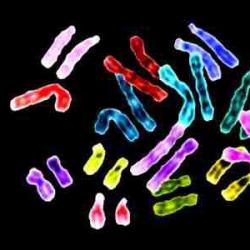Essay “about time and about myself.” Essay “about time and myself” Several interesting essays
Time goes by very quickly. It cannot be stopped or slowed down. Man has no power over time, but time has power over man. Whatever a person does, he needs days, hours, minutes. Everything is determined by time - how much to work, how much to rest, when to meet with friends, and when to do household chores.
Time plays the most important role in human life. Over time, he grows, gets smarter and matures. Sometimes there are times when you want time to fly by quickly and unnoticed. For example, when we are waiting for a delayed train or are in anticipation of a long-awaited gift or a meeting with a person whom we have long wanted to see. But every minute we get older, and the faster these minutes pass, the faster we grow old. Therefore, time is a very valuable element of human life. You need to be able to use it in such a way that you never have the feeling that it was wasted and generally lost forever.
And human life itself is just a particle of time. And this particle needs to be given due attention, not wasted on all sorts of trifles. Every minute should be imbued with benefit. Every minute you can and should discover something new for yourself and about yourself, achieve something and develop in your favorite business. Every minute a person learns something. Time is constant development.
Time is unchanged and at the same time it does not stand still. There are still sixty seconds in minutes, but none of these seconds are similar to each other. The power of time is the most powerful force in this world.
Over time, you need to make friends. Never push and complain that there is always not enough. You just need to understand how to behave correctly with him and then life will become interesting and joyful.
Grade 11. Unified State Exam
Several interesting essays
- Essay A funny incident 5th grade
In the summer, my parents sent me to my grandmother. Grandmother lives in Belgorod. The summer was just great. I read books for school curriculum
- Analysis of the work The Little Prince by Exupery
“The Little Prince” is the most famous work of the talented French author, publicist and pilot Antoine de Saint-Exupéry. The work is included in the list of compulsory school literature
- The image of nature in Yesenin's lyrics essay
The work of Sergei Yesenin belongs to the new peasant poetry, therefore the main theme of the author’s poems is nature.
- The history of the creation of the story by Asya Turgeneva
The writer came up with the idea for the work by chance during his stay in Europe, in Sinzig, Germany, while being treated for neurological manifestations.
I woke up, it was a little light, then I looked at the clock that was on the nightstand, it was 9 in the morning. I got up quickly, got dressed, went to the window and saw that outside the window snow was falling in large flakes
What do you imagine when you hear the word time? Running clock hands or a flashing dial, the calm river of Eternity or a kaleidoscope of changing pictures of your life, plans for today or a promising calendar for the year, the feeling of “Oh! I’m late!” or “And let the whole world wait...”, an alarm clock screaming in the morning, or the aroma of coffee and oriental spices that tickles the nostrils half asleep..
So what is this time of ours? One of the dimensions? Measure of value? What cannot be touched, but can be felt? What is there “free car” or “running short”? 24 hours a day or an entire Eternity ahead?.. And how to manage, let alone manage, what is so different in sensations and definitions?
There is such a fashionable (mind you, for many years now!) word time management. How many books have been written on this topic! How many talented and not so talented people are trying to teach others to manage time, to subordinate it to themselves, to become its ruler, master, owner and manager!.. How many wonderful people, trying to improve the quality of their lives, begin to cut out hours, days and weeks, trying to squeeze them into the dial 24 hours - 150 “important and necessary things”!..
In one children's cartoon, a greedy rich man, ordering a hat from a furrier, bargained, first asked to sew one hat from this small skin, then asked for two, three... they agreed on nine. Imagine his surprise when, having come to pick up his order, he received nine hats, of excellent quality, tall and warm, but... the size of a thimble! When a person tries, with the best of intentions, to “cut out nine hats from one skin,” then the hats come out of the appropriate quality and size.
No matter what experts in the field of time management say, there is an assumption that you will have to manage not 24 hours, but still... yourself. Yes! Let's return to ourselves, beloved. And here an interesting question arises: how I handle time and how I plan, how I move through life and how I relate to the world and myself. You can, of course, plan 150 “important things” and try to squeeze them into one summer day in July, straining yourself, your environment, and the Universe. It’s not a fact that you will have time to do it. But the fact is that tension will remain - for yourself and others. And if we go further and assume that this is the case day after day... For months... For years... It is not surprising that, as a result, such an “active and active person” begins over time to complain, first of depression and constant quarrels with those around him, then of chronic diseases and chronic scandals. But this outcome was predictable even on the first day of “general tension.” Failure to observe the first commandment of a harmonious relationship with oneself and the world, “Don’t strain!” leads to very disastrous results.
How to be? How can you manage to do everything you have planned on this day and in this life and at the same time remain in harmony with yourself and the world?
Start over. The affairs are ours, we plan. We also determine the urgency and importance of whether to do it or not. Based on what criteria? Where, when and how did we get these criteria? And are they ours? Often, when planning and making decisions, we focus on the end result - I’ll get there and be happy there. But no one takes into account the fact that running along this road, at such a rhythm and with such obstacles is stressful for oneself! At the “School of the Achiever,” where we talk in great detail about goals, internal criteria, correct desire and planning, as an important component of luck in general, there is such a nice idea. If you are pleased not only with the end result, but also with the process of achieving this result, that’s your goal!
A simple criterion – whether the process of achievement pleases or pleases, as practice shows, is the most effective. It not only allows you to get rid of the unnecessary and unimportant, not only allows you to accomplish much more in this life (when it makes you happy, it always gets done faster), but it also allows you to harmonize your relationship with yourself and the world.
So what is time and how do we understand it for ourselves? We perceive time as a series of changes. And only thanks to the constantly changing world, events, people, internal sensations, we perceive and understand the passage of time.
“Time didn’t pass for me at all. It’s not that it lasted or even stopped, it just didn’t exist. Time - after all, it consists of changes, large and small, external and internal, noticeable and almost indistinguishable; or rather, change is almost the only way accessible to every person to feel the passage of time (jumps of the second hand, the movement of grains of sand pouring from the upper bowl to the lower - also changes, insignificant, yes, but quite visual)" - M. Fry, "Chub land."
Time = change...
Pleasant and joyful changes in your life!
Essay “About Time and Myself”
I am fifteen years old. Of course, I understand that I still have everything ahead, but I believe that adolescence and youth are the most beautiful and at the same time the most tragic stages in the life of any person. In these moments you experience everything: first love, first hatred, kindness and anger, ups and downs. Happiness and grief, mercy and childish cruelty. This is the period when personality is formed. A person, as it were, throws away all his unnecessary qualities and acquires completely different, necessary ones, which he will transfer into his future life. I think that my task for today is to defeat laziness, suppress my hatred of the whole world. If you don’t do this now, then in three years it will be too late.
It is at the age of fifteen that a person chooses the purpose of life. But at the same time, internal conflicts often occur in the soul of a teenager. Now what is called selfishness is progressing in me. This does not mean at all that when my mother wants to sleep or relax, I listen to music too loudly. I just want to be above others: to look down on everyone, so that all life goes only around me. I hope that this will pass, because in adult life there will not always be “I want” and “I’m first.”
At fifteen, a person is receptive to life's lessons. I feel what the adults told me about is growing in me: a sense of responsibility, duty, eating, human dignity. For me this is not an empty phrase. Many generations are now growing up in an environment where these concepts are not used, which will undoubtedly affect future life.
Korobkova Nastya, 9th grade
Time...Something elusive, incredibly fast, and sometimes viscously slow, like syrup. It cannot be caught or felt, it cannot be seen. But you can look through it. People of different eras like to say “our time.” What is it, yours? You can hear from adults: “This didn’t happen in our time!” Really? Maybe it wasn’t like that, but it was different. And who said that in hundreds of years no one will say that it is better to live in tribes? On the other hand, time is something constant. And over the years, centuries, millennia, little has changed in it. And some things remain the same.
I am a human being. A human being is precisely the creature on whom you can see the consequences of time. At different times, people looked different, in different eras they demanded different patterns of behavior from themselves and others. And there was always only one thing left.
People were getting old. No matter who they were, what class they belonged to, no one could withstand the battle with time and everyone found death.
And now, at fifteen, I think that I haven’t lived at all yet, that in the time allotted to me I will see so much more, change decisions, make mistakes. I will fight against time myself. After all, he is so interesting. This life.
Guseva Rita, 9th grade
I am my time, and time is life. I try to keep up with the times, but at the same time I must not lose myself.
When you walk along the streets of our city, and people with cold, aloof faces pass by you, in whose eyes only greed shines, a chill runs down your spine. It’s good when a person is wealthy, but when this becomes the goal of life, it’s scary. Ideals and traditions are crumbling, the life I dreamed of is crumbling.
It’s hard to believe that in a few years all this will be outdated and no longer relevant.
Today I cannot imagine how people once lived without televisions, tape recorders, refrigerators, mobile phones, without knowing the Internet. Nowadays this is a common thing, no one can do without them.
I live with the thought that tomorrow will be better than today. We are given so many opportunities that it would be stupid not to take advantage of them. We have everything for a good life, there is no limitation in choice. We can read books, or we can get any information from the Internet.
We can talk about this for hours, but there is a simple truth: we live in peace, and it is beautiful.
Life is given, and there is only one: you must live with dignity and happiness, so that they remember you with a kind word and do not remember bad things.
Kopysov Alexander, 9th grade
About time and about myself.
The atmosphere of creativity, which is established in all areas of our society, has a beneficial effect on the school, stimulates teacher research, awakens students’ activity and interest in learning. What's new in the work of a teacher? Departure from instructions and prescriptions, authoritarian “developments”, search for your own effective ways, methodological techniques, enrichment and development of existing forms and methods, taking into account your capabilities and abilities, training and interests of precisely those students with whom you are going to class today. We, teachers, have the right to creativity, we are looking for ways to update the lesson, improve the results of learning and education.
The individual style of a teacher is born in search, in originality, in creativity. However, not everyone is able to find their own style, overcome stereotypes and templates, and renounce the authoritarian pedagogy that has been instilled for decades. And time requires the teacher to be able to adapt, to respond subtly to ongoing changes, because in an atmosphere of social activity, openness, and awareness, many students place fairly high demands on the level of teaching and on the teacher’s personality.
In the emerging contours of the future society, education increasingly belongs to the category of national wealth, and a person’s spiritual health, the versatility of his development, the breadth and flexibility of professional training, the desire for creativity and the ability to solve non-standard problems are turning into the most important factor in the country’s progress.
Constant expansion and updating of knowledge is an important sign of our time. Therefore, every teacher, before hanging a sign in the classroom “Learn to learn!”, must imprint this slogan in his soul. To teach others, first of all, you must constantly learn yourself.
And there is a lot to learn. First of all, to make the school a home where teacher and student are always together, at the same time, where they are not separated by a wall of misunderstanding and alienation, but are united by a single spirit. Learn to understand and accept those who do not like your subject, but prefer another. Learning to arouse interest in your subject, which is especially difficult. Learn the art of teaching.
“The art of teaching lies not in the ability to communicate, but in the ability to excite and enliven,” said Disterweg. However, in mass practice, especially among young teachers, of whom I include myself, the “monologue” type of teaching is common. Students love such teachers because they do not bother them with unnecessary work. But, in my opinion, such “beak to beak” lessons instill in students a consumerist attitude towards knowledge and hinder their development.
I think that true communication is joint, interested and active, the acquisition and development of truth, which enriches both the students and, in many ways, the teacher. The modern lesson is incompatible with the authoritarianism of teaching, when the thought, will and feeling of the student are suppressed, and the teacher acts as an omniscient, infallible, almost the only source of knowledge. The modern lesson is dialogical in the sense that teachers and students form a single ensemble in which both sides, each in their own way, are interested in the search for truth. In this case, it is impossible not to turn to the thoughts of the wonderful teacher-methodologist G. Neuhaus: “one of the main tasks of the teacher is to do as quickly and thoroughly as possible so as to be unnecessary for the student, to eliminate himself, to leave the stage on time, that is, to instill in him that independence of thinking, working methods, self-knowledge and the ability to achieve goals, which are called maturity..."
Therefore, I determined for myself that in order to keep up with the times, it is not enough to give children a certain amount of knowledge, it is necessary to develop their personalities, their cognitive and creative abilities. I must, first of all, instill in children civic responsibility, spirituality and culture, initiative, independence, and tolerance.
A teacher, in my opinion, should be broader than his subject, and in his subject, broader than the program. Each of my lessons is the beginning of many beginnings and the continuation of many continuations, which in the broadest sense affect the spiritual atmosphere of the student. We are often surprised how it could happen that at a time when we began to measure the degree of radiation with a Geiger counter, determine environmental pollution and shallowing of lakes, no one thought about how to measure spiritual shallowing, when they learn about Caligula or Mozart only from videotapes.
After all, it would seem that they come to first grade, noisy, mischievous, curious. They want to know a lot, they believe you, they expect discoveries from you. So why does it happen that not all of them emerge from the walls of the school as accomplished people? Probably because not every one of those who have chosen the difficult path of a teacher is fully aware of the responsibility entrusted to him. Not every one of the guys lets you into their world, but they need us. Only a teacher can and should melt their hearts, make them softer and purer. There are always many problems at school, both solved and unresolved. And it’s not to your honor to simply go with the flow, leaving one of your colleagues to sort out what you don’t like. Activity and effectiveness. Our life today is unthinkable without this. Our students need us as caring people. And we also take a lot from our students. Otherwise, where do we get our inner strength, confidence, enthusiasm, and endurance? Who makes us leaf through issues of thick magazines and new books long after midnight? It's all them, guys.





